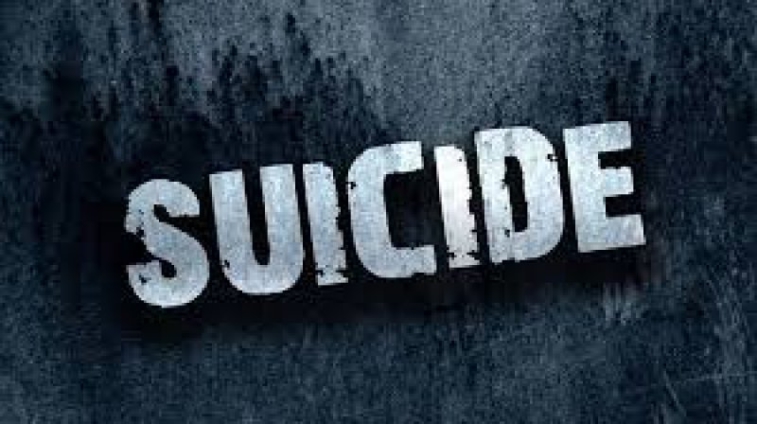Former Chief Executive Officer of the Mental Health Authority, Prof. Akwasi Osei, has argued that decriminalizing suicide in Ghana was a positive move, but not adequate.
“Decriminalization will enable persons contemplating suicide to come out in the open to seek help.
“We however need to do more by way of public education for suicide awareness and for stigma reduction, training of human resources, the police and judiciary for them to be abreast with this new situation,” he said.
Prof. Osei was speaking at a forum held in Accra by the Centre for Peace and Reconciliation (CPR), a non-governmental organization.
The forum was dubbed: “Changing the Narrative on Suicide: The Role of Stakeholders to reduce suicide attempts and suicides.”
Ghana’s Parliament in March 2023 amended the Criminal Offenses Act of 1960, which previously made attempted suicide a criminal offence in the country.
Subsequently, in June 2023, President Nana Akufo-Addo gave accent to the amended legislation.
Suicide kills 700,000 people every year, making it one of the major causes of mortality in the world.
According to the WHO 2020 report, there were around 1,993 suicides in Ghana each year.
Prof. Osei emphasized the importance of addressing cultural and taboo concerns around suicide deaths, stigma, and suicide as a sin.
“All these need to be tackled for us to enjoy the full benefits of decriminalization,” he said.
Prof. Osei emphasized the need for stakeholders to implement risk-identification mechanisms through public education.
“We need to put in place a mechanism for general education, workplace education and Employee Assistance Programme,” he stressed.
Prof. Osei said that Ghana needed to train more suicidologists, as the country currently has only four of them.
“We need to train general duty health staff, doctors, nurses, pharmacists, to recognize early warning signs.”
According to him, although suicide had been decriminalized in Ghana, some courts had convicted people who attempted it.
“We need to train the police, Judiciary and all duty bearers on the new law.”
Prof. Osei noted that understanding the nature of suicidal behaviour was key in curbing cases, adding that suicide is a symptom of an underlying mental health condition in most cases.
Prof. Osei said between 93 and 95 per cent of all suicides and attempted suicides emanated from mental disorders.
“Over 80 per cent of all attempted or completed suicides are from depression. A cardinal feature of depression is a sense of hopelessness,” he noted and appealed to people to seek help.
Prof. Osei said the reasons for suicide among men in Ghana were varied.
These included marital challenges, economic difficulties, perceived shame, pre-existing mental illness, substance use, chronic illness and loss of job or income.
Touching on the pattern of suicide in Ghana, Prof. Osei said there was about a 10-year pattern of peak attempts.
“Suicides go down and resurfaces in ten years adding, the last major surge was in the year 2017.”
He appealed to the media to desist from providing vivid accounts of suicide cases to prevent “copycat” suicides.
In a speech read on his behalf, the Inspector General of Police, Dr George Akuffo Dampare, said that mental health was a significant part of life that required resources and time to change the narrative.
He said that every suicide was a tragedy that affects families, communities, and the entire country, with long-term consequences for those who are left behind.
Apostle Eric Nyamekye, Chairman of the Church of Pentecost, said that the church had made its pulpit "pro mental health" to deliver messages of compassion and support to the needy, underprivileged, and vulnerable.
Justice Hafisata Amaleboba, a Court of Appeal Judge who represented Chief Justice Gertrude Sackey Torkornoo, said the issue of suicide should be of grave concern to everyone.
She emphasized the need for immediate action to prevent suicides and save lives in the country.
According to Justice Amaleboba, the World Health Organization (WHO) saw suicide as a public health issue that required a public health solution.
Dr. Emmanuel Hopeson, Founder and CEO of CPR, said the Forum aimed to put decriminalization into action by providing therapy and support to individuals struggling with suicidal thoughts.
“We want to tell people that there is hope for all, no matter the situation, no one should also die of suicide because every life matters,” he said.
Latest Stories
-
ECG to pilot new pre-payment system in Volta Region in 2025
3 minutes -
Hammer splits ‘Upper Echelons’ album into two EPs; addresses delay in release
5 minutes -
NDC MPs back Supreme Court’s ruling on anti-LGBTQ bill petition
16 minutes -
Dr. Rejoice Foli receives Visionary Business Leader Award
19 minutes -
Economic missteps, corruption, unemployment and governance failures caused NPP’s crushing defeat – FDAG report reveals
22 minutes -
Supreme Court, EC need complete overhaul to safeguard our democracy – Benjamin Quarshie
24 minutes -
Dr. Elikplim Apetorgbor: Congratulatory message to Mahama
31 minutes -
Gabriel Kumi elected Board of the Chamber of Oil Marketing Companies
38 minutes -
Ga Mantse awards scholarships worth GHȼ100,000 to pupils in Ga communities
43 minutes -
NDC minority did not help the governance of the country – Afenyo-Markin
56 minutes -
NDC gov’t will struggle to fund social intervention programmes – Afenyo-Markin
1 hour -
Man arrested for vandalising property at Parliament
1 hour -
NDC’s internal struggle over who succeeds Mahama in 2028 has started – Afenyo-Markin claims
1 hour -
NDC’s mischievous campaign and propaganda will soon expose them – Afenyo-Markin
2 hours -
African banks to remain exposed to domestic, global operating environments risks – Fitch
2 hours

